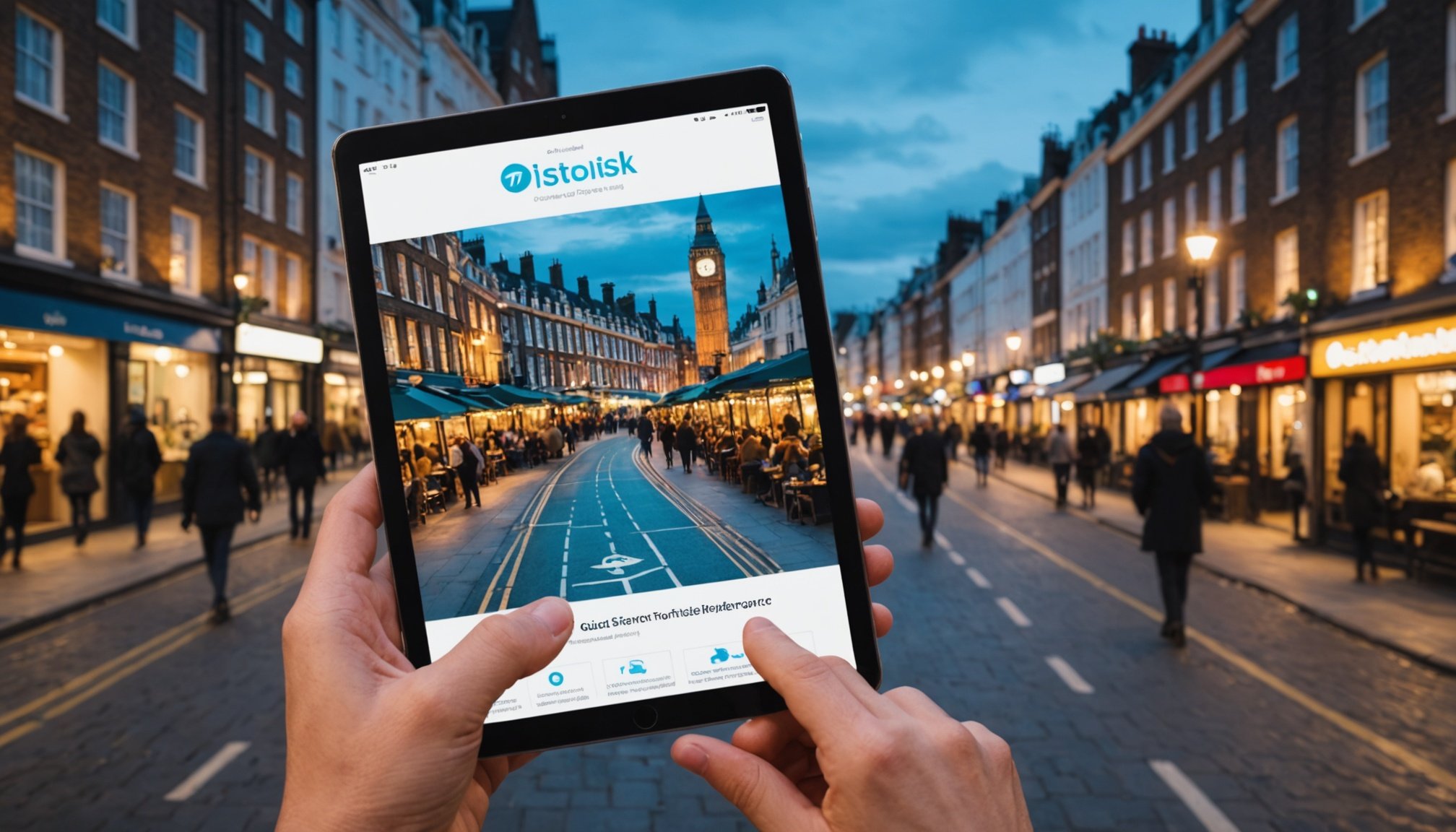Unlocking Travel Insights: A Comprehensive AI-Driven Guide for UK Travel Agencies to Predict Trends and Enhance Customer Experience
The travel industry is on the cusp of a revolution, driven by the relentless advancement of artificial intelligence (AI). For UK travel agencies, embracing AI is no longer a choice but a necessity to stay ahead of the curve. Here’s a detailed guide on how AI can help predict trends, enhance customer experience, and transform the way travel businesses operate.
The Role of AI in the Travel Industry
AI is not just a buzzword; it is a game-changer in the travel industry. From personalizing travel experiences to streamlining operational efficiencies, AI is redefining how travel companies interact with their customers.
Have you seen this : Creating an intelligent ai-driven food delivery recommendation engine for uk platforms
Personalization Through AI
One of the most significant impacts of AI is its ability to personalize the travel experience. Machine learning algorithms can analyze traveler preferences, booking behaviors, and past interactions to deliver experiences uniquely tailored to each user. For instance, AI can generate personalized itineraries, offer on-demand recommendations, and provide real-time assistance, all of which enhance the customer experience significantly[3].
### Examples of AI-Driven Personalization
- **Personalized Itineraries**: AI can suggest travel plans based on a traveler's interests, dietary restrictions, and past travel behaviors.
- **Real-Time Assistance**: Chatbots and voice assistants powered by AI can help travelers plan and manage their trips with ease.
- **Tailored Recommendations**: AI can analyze customer data to recommend hotels, activities, and local experiences that align with the traveler's preferences.
Leveraging Generative AI for Enhanced Customer Engagement
Generative AI (Gen AI) is the latest frontier in AI technology, and it is transforming the hospitality sector in profound ways. Gen AI can generate innovative content, such as tailored welcome messages, in-room guides, and interactive entertainment options. A global hotel group, for example, launched a Gen AI-powered travel planning service that helps guests book stays with personalized recommendations and information[4].
Additional reading : Effortlessly create subtitles with ai for your videos
Use Cases of Generative AI
- Content Generation: Gen AI can create dynamic and personalized content for guests, including welcome messages and in-room guides.
- Travel Planning: AI-powered travel assistants can recommend dinner options, local activities, and other experiences based on the guest’s preferences.
- Marketing Campaigns: Gen AI can craft timely and targeted marketing campaigns by generating content that resonates with specific customer segments.
The Power of Data Analytics in Predicting Trends
Data analytics is a crucial component of AI-driven strategies in the travel industry. By analyzing demand patterns, identifying target audiences, and optimizing marketing budgets, travel companies can anticipate customer needs and meet them effectively.
How Data Analytics Works
- Demand Patterns: Predictive analytics can help airlines and hotels adjust pricing dynamically based on demand patterns.
- Target Audiences: Data analytics can identify key demographics and tailor marketing strategies accordingly.
- Marketing Budgets: By understanding customer behavior, travel companies can optimize their marketing budgets for maximum impact[3].
### Table: Benefits of Data Analytics in Travel
| Benefit | Description |
|
|-----------------------------------------------------------------------------|
| **Demand Forecasting** | Predicting demand to adjust pricing and inventory. |
| **Customer Segmentation** | Identifying key demographics to tailor marketing strategies. |
| **Marketing Optimization** | Optimizing marketing budgets based on customer behavior and preferences. |
| **Real-Time Insights** | Providing real-time data to enhance customer service and experience. |
| **Operational Efficiencies** | Streamlining operational workflows to reduce costs and improve efficiency. |
Immersive Experiences with AR and VR
Augmented Reality (AR) and Virtual Reality (VR) are changing the way travelers explore destinations, hotels, and experiences. These technologies provide immersive experiences that bridge the gap between inspiration and decision-making.
How AR and VR Enhance Travel
- Virtual Tours: AR and VR allow potential travelers to take virtual tours of resorts, hotels, and local attractions, providing a more comprehensive view than photographs alone.
- Interactive Experiences: AR can add layers of cultural, historical, or practical information to the traveler’s surroundings, enhancing their trip and satisfaction[3].
AI in Customer Service: Revolutionizing Support
AI is not just about personalization; it is also about enhancing customer service. Chatbots and voice assistants are becoming invaluable resources for travelers, helping them plan and manage their trips with ease.
AI-Powered Customer Support
- Chatbots: AI-driven chatbots can handle customer inquiries, provide real-time assistance, and even book flights and accommodations.
- Voice Assistants: Voice assistants integrated into travel apps can offer personalized recommendations and assistance throughout the trip[5].
### Examples of AI-Powered Customer Support
- **Booking.com**: Uses chatbots to assist users in booking flights and accommodations.
- **Skyscanner**: Employs AI-powered chatbots to help users find the best travel deals.
- **Expedia**: Utilizes voice assistants to provide real-time assistance to travelers.
Overcoming the Hurdles of AI Adoption
While AI offers numerous benefits, its adoption is not without challenges. Many tour, activity, and attraction operators are still behind in leveraging AI, with only 12% actively using generative AI in their operations[2].
Tips for AI Adoption
- Start Small: Begin with simple AI applications such as chatbots for customer service.
- Experiment and Test: Continuously experiment with new AI tools and test their efficacy.
- Seek Expertise: Collaborate with AI experts and industry leaders to understand the best practices.
### Checklist for AI Adoption
- **Assess Current Operations**: Identify areas where AI can add value.
- **Choose the Right Tools**: Select AI tools that align with your business needs.
- **Train Your Staff**: Ensure your team is equipped to use AI effectively.
- **Monitor and Adjust**: Continuously monitor the performance of AI tools and make necessary adjustments.
Sustainability and AI: A New Frontier
As consumers become more environmentally conscious, sustainability is becoming a critical factor in travel decisions. AI can help travel companies demonstrate genuine and transparent sustainability efforts.
How AI Supports Sustainability
- Eco-Friendly Recommendations: AI can suggest destinations and accommodations that are less affected by climate change.
- Local Environment Protection: AI can help travel companies protect local environments by analyzing data on environmental impact and suggesting sustainable practices[1].
The integration of AI in the travel industry is not just a trend; it is a necessity for businesses looking to enhance customer experience, predict trends, and stay competitive. By leveraging AI-driven personalization, generative AI, data analytics, AR and VR, and AI-powered customer service, UK travel agencies can create powerful connections with their customers and foster memorable travel experiences.
As Hannah from Reflect Digital notes, “By offering valuable, free content or tools, such as travel guides or planning tools, to create a sense of obligation in users, encouraging them to engage more deeply with your brand”[1].
In the words of Deloitte’s survey, “AI has the potential to transform service models across the hospitality sector by providing personalized and dynamic content for guests”[4].
Embracing AI is not just about adopting new technology; it is about revolutionizing the way travel businesses operate and engage with their customers. As the travel industry continues to evolve, those who harness the power of AI will be at the forefront of innovation and customer satisfaction.











